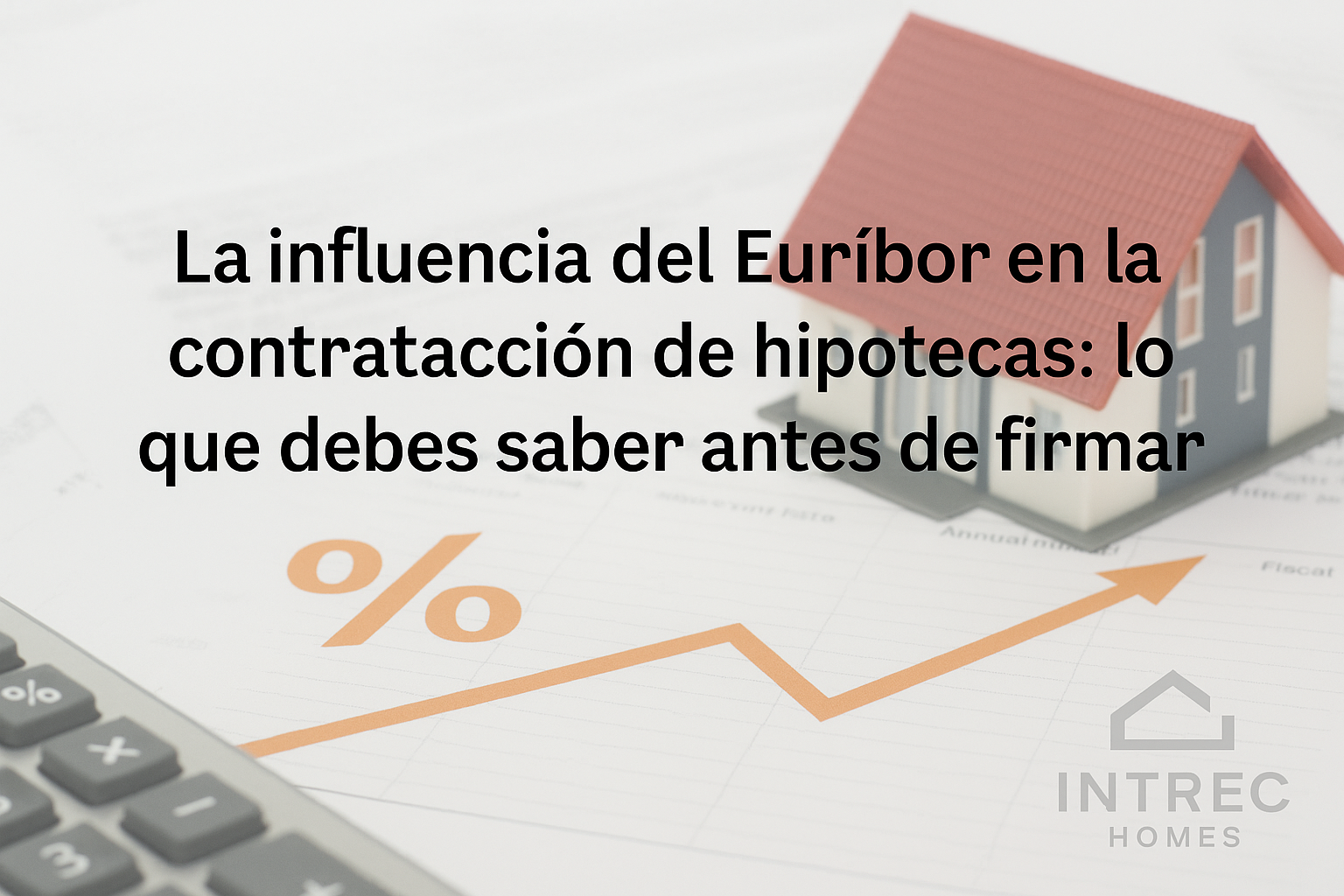The influence of the Euribor on mortgage contracts: what you should know before signing
The Euribor (Euro Interbank Offered Rate) is a term many people hear when thinking about buying a home or applying for a mortgage — but few truly understand how it affects their long-term finances. In this article, we’ll explain clearly and in SEO-friendly terms how the Euribor impacts your mortgage, why it rises or falls, and what you should consider before signing your loan agreement.
What Is the Euribor?
The Euribor is the interest rate at which major European banks lend money to each other. This benchmark is used to calculate the cost of most variable-rate mortgages in Spain and across the eurozone. In simple terms, if the Euribor rises, your mortgage payment may increase; if it drops, you’ll pay less.
Most variable-rate mortgages are tied to the 12-month Euribor, meaning the rate is reviewed once or twice a year based on current market levels.
Why Does the Euribor Affect Mortgages?
When you take out a variable-rate mortgage, the bank usually offers an interest rate that combines two elements:
- Euribor (reference rate)
- Spread (the bank’s margin)
For example, if your mortgage rate is Euribor + 1% and the Euribor is at 3%, your total interest rate will be 4%.
This means that even a small increase in the Euribor can significantly raise your monthly payment.
Factors That Influence Euribor Fluctuations
The Euribor doesn’t move randomly — it’s influenced by several economic and financial factors, including:
- European Central Bank (ECB) decisions:
When the ECB raises interest rates to control inflation, the Euribor tends to rise as well, leading to higher mortgage costs for consumers. - Inflation and economic growth:
In times of high inflation, central banks tighten monetary policy, making borrowing more expensive. When the economy slows down, rates usually decrease. - Confidence between banks:
If there’s financial instability or a lack of trust in the banking system, banks charge each other higher interest, pushing the Euribor up even without ECB intervention.
How the Euribor Impacts Your Monthly Mortgage Payment
The Euribor’s impact is most noticeable on variable-rate loans. Let’s say you have a €150,000 mortgage over 25 years at Euribor + 1%:
- If the Euribor is at 1%, you’d pay around €565 per month.
- If it rises to 4%, your payment would jump to about €792 per month.
This represents over €2,700 per year in additional costs — just from rate fluctuations. That’s why understanding and anticipating Euribor trends is crucial for your financial stability.
Fixed vs. Variable Mortgages: Which Is Better?
The behavior of the Euribor directly influences whether a fixed-rate or variable-rate mortgage makes more sense for you.
- Fixed-rate mortgage:
Provides stability, as your monthly payment remains the same throughout the loan term. It’s ideal when the Euribor is low but expected to rise. - Variable-rate mortgage:
Usually starts with a lower rate but carries the risk of future increases. It’s more attractive when the Euribor is high or trending downward.
You can also consider a mixed-rate mortgage, which combines a fixed rate for the first few years and a variable rate afterward — a popular choice during uncertain economic times.
How to Protect Yourself from Rising Euribor Rates
- Negotiate a low spread:
A smaller margin reduces the impact of Euribor increases on your payments. - Consider switching your mortgage (subrogation):
If market conditions improve, you can transfer your mortgage to another bank with better terms. - Make early repayments:
If you have savings, paying down part of your loan helps reduce interest costs and exposure to Euribor fluctuations. - Get interest rate protection insurance:
Some banks offer financial products that cap your payments if the Euribor rises sharply.
Euribor Outlook for 2025 and Beyond
Throughout 2024 and 2025, the Euribor has shown a stabilization trend after sharp increases in 2022 and 2023. Analysts predict that if inflation remains under control, the ECB may gradually lower rates — easing the burden on millions of homeowners.
However, global economic uncertainty and energy price volatility could change this scenario. That’s why it’s essential to stay informed and review your mortgage conditions regularly.
Conclusion: The Euribor as a Financial Thermometer
The Euribor is much more than a technical figure — it’s a true indicator of the European economy and the real cost of money. Its fluctuations directly affect the financial well-being of countless households.
Before signing a mortgage, do your research, compare offers, and analyze Euribor forecasts. A well-informed decision can save you thousands of euros over the life of your loan.





